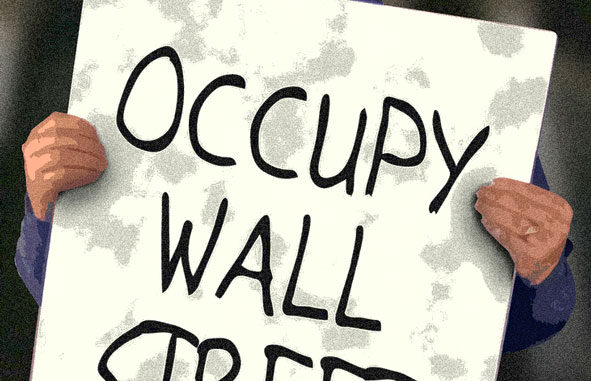
by Justin Karter
Recent lawsuits have revealed the members of Occupy, anti-war activists and protesters are treated as “terrorists” by the F.B.I. and other law enforcement agencies, a designation that carries potential legal and civil rights consequences such as increased surveillance and indefinite detention.
In response to repeated Freedom of Information Act (FOIA) requests concerning an alleged sniper plot to assassinate members of Occupy Houston, FBI FOIA chief David Hardy repeatedly argued in court that the information was classified because “disclosure would interfere with an investigation.” The F.B.I. investigation was not concerning the assassination plot however. Rather, it was directed at the members of Occupy Houston. Hardy stated that Occupy Houston is being investigated for “domestic terrorism” and “advocating overthrow of government.”
Jeffrey Light, an attorney representing Ryan Noah Shapiro, the MIT graduate student who made the FOIA requests in question, explained in an interview with Occupy Pittsburgh News:
“Based on the limited information we have to date, the most likely scenario is that the FBI learned about the sniper plot during the course of their investigation into the Occupy movement. The documents that have been released so far, as well as the FBI’s court filings, seem to show that the Bureau was more alarmed about the momentum of the Occupy movement and its protest activity than the fact that a person or group had developed a long-term plan to assassinate members of Occupy Houston. It’s not clear what, if anything, the FBI did about the assassination plot.“
In their latest filing, the FBI has changed course and is now claiming that the ongoing investigation, which prevents the release of the FOIA documents, may concern the assassination plot or the actions of Occupy or some unspecified threat to critical infrastructure.
“They’re now clarifying their earlier claim that the investigation was into threats by Occupy,” Light said. “They’re now saying that what they meant to say is that the investigation is into threats by and against Occupy.’”
In a heavily redacted memo titled “Domestic Terrorism,” released as part of the FOIA request, the sniper plot is discussed briefly but the purpose of the memo, stated in the synopsis, is “regarding the spread of Occupy Wall Street.” The document, which was distributed to field officers around the country, reports the spread of “several Facebook pages dedicated to specific [Occupy] chapters,” making clear that law enforcement was monitoring the group on social media.
Since 9/11 the Federal government has expanded its surveillance and detention powers in its effort to win the “War on Terror” through legislation such as the National Defense Authorization Act (NDAA) and the Patriot Act. As a result the “terrorist” label can lead to serious legal consequences. For example, section 1021 of the NDAA has come under fire from well known Truthdig columnist Chris Hedges and scholar Noam Chomsky, among others.
Hedges and Chomsky claim that the NDAA allows the U.S. Military to jail those labeled a “terrorist” anywhere in the world, without charge or trial until “the end of hostilities.” The law also states that the federal government can indefinitely detain those who give “substantial support” to Al Qaeda, the Taliban, or any “associated forces.” The terms “terrorist” and “end of hostilities” are not defined and the broad, sweeping language accounts for a majority of the controversy around this legislation. It is hard to know who could be determined to be a “terrorist” and therefore indefinitely detained until the seemingly ceaseless “war on terror” comes to an official end.
In regards to the Occupy Houston investigation, Light pointed to a distinction between being investigated for the act of terrorism and being considered an official terrorist group. While it is not clear from the court filings whether Occupy has been placed on any particular terrorist list, the FBI’s position is that Occupy protests may involve acts of terrorism.
Whether Occupiers are being investigated for potential terrorist acts or are considered a terrorist group, removing such a label could prove difficult, Light warned:
“As far as trying to be removed from a terrorist watch lists, there is no due process. There is no effective way to get off these lists. The few mechanisms that exist are a mess and do not provide for adversarial proceedings. For individuals, if it turns out that they are confusing you with someone with the same name then they will sometimes try to correct it. But otherwise, the government has not generally been willing to remove individuals from the list. Even Nelson Mandela remained on a U.S. terrorist watch list until only a few years before his death, and even for him it took an Act of Congress to remove him from the list.”
